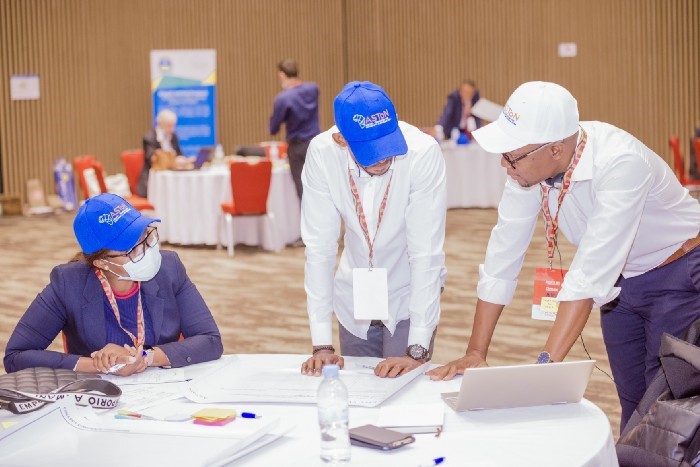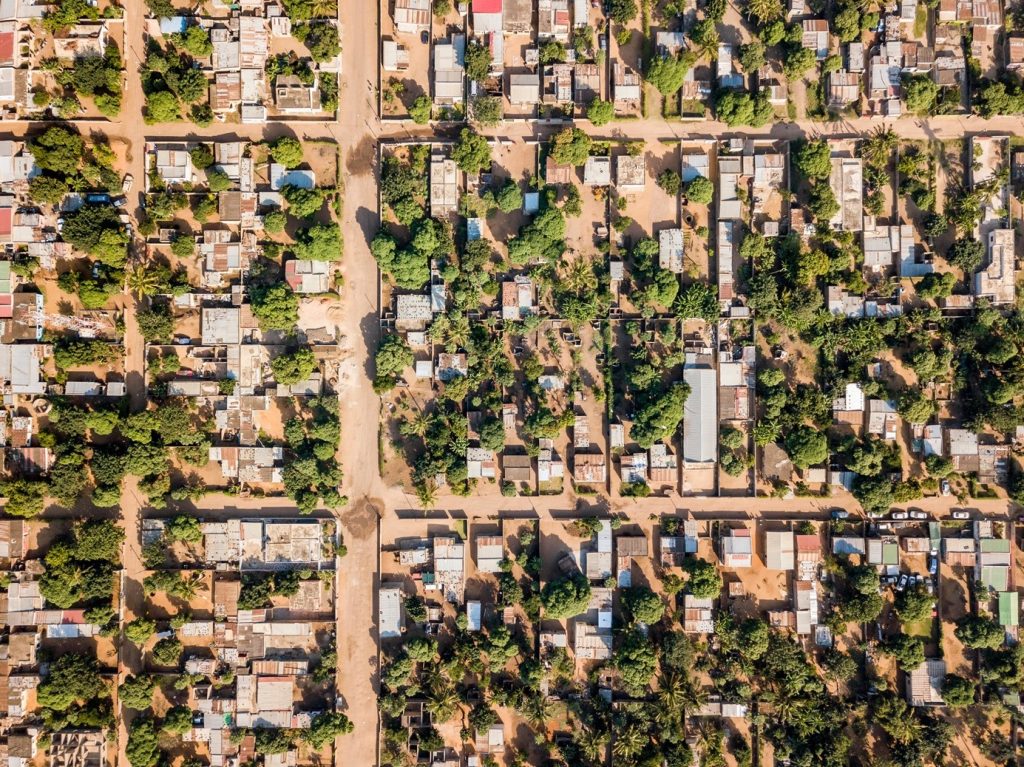“We are learning to reinvent ourselves through our ASToN project” – ASToN conversations with Omar Bay, local coordinator in Matola
ASToN is a pilot project where 11 African local authorities work together to test and implement their own plans for digital transformation to support sustainable & smart development in their cities. This interview is part of a series of 3 conversations with city leaders in the ASToN network where cities and their local ecosystems are working together for an inclusive digital transition.

Omar Bay is the local coordinator of the ASToN project in Matola Municipal Council, and together with his team they are working on an integrated database allowing them to collect and manage taxes. Omar spoke to SAAM stad* about their method to advance and implement their project.
Tell us about your ASToN project
Our ASToN project focuses on using a digital system to collect municipality’s taxes and fees. At the beginning we thought that our revenue collection problem was because citizens don’t pay their taxes, but in fact it’s because the Matola municipality doesn’t have an integrated database. When we started ASToN we were focused only on revenue collection. But once we started discussing with all our partners about what digitalization actually means, we realized that besides how citizens pay their taxes, there are other areas that we should focus on, like how citizens can schedule an appointment with the municipality online, or how they can get proofs of payments or how the municipality is managing different revenues coming from different sources. Talking with all stakeholders during our first meeting helped us have a better understanding of our root problem and shift our approach.

This initial discussion proved to me that if, from the beginning, you involve all partners from civil society, to startups, and ministry and municipality representatives we can have a better understanding of our problem. In the past we used to work by ourselves, and we saw that when we involved new partners it was difficult to have their support because they hadn’t followed the guiding idea of our project. So involving everyone from the beginning actually becomes easier than working in isolation.
How do you work with all these people, what do you do to make your collaboration easier?
From the beginning we gathered everyone who was involved in the project and we explained to them what are the things that are important for the municipality, like implementing solutions that follow the laws in our country and how we want to do them, through cooperation, by giving feedback, experimenting and constantly improving our project. This is not something special, but I think it’s important to make sure that from the beginning everyone is on the same page. Working with everyone from the beginning is helping us because the project no longer stays in the mind of one person and everyone is responsible for how the project advances. The Matola project belongs to all of us and we all think of how we can move it forward, we are all in this together.
Another thing that we do is to make sure everyone gets involved, so when there are ideas that don’t fit everyone’s perspective we always try to discuss all options and if needed we go back and try to find another solution that works for all of us. We do this exercise over and over again and in this way everyone gives us an input and is part of our solution.
What did you learn from the ASToN?
How to conduct our meetings and work with all our partners is definitely something we learnt from ASToN. For us ASToN was not only about digital transition, but also about how we do our work every day because we started using the ASToN tools for other projects. For example we use the problem tree analysis when we want to come up with a solution, it is more structured and more helpful. Or when we face a problem that many people complain about, we call in all the people working on that issue and we discuss the problem, its causes, the manifestation of the problem and we try to put together a solution. In this way we are also helping other colleagues working on different projects, and not only… ASToN has given us a training that we can use in our work but also in our life.

How is the collaboration with the startups for your ASToN project going?
Working with startups helped us grasp existing solutions that can advance our digitization process. Private sector is very business oriented so now we look at existing solutions that we can adapt to the needs of the people of Matola. Together with other institutions we have to grow up more quickly and this is another reason why now we are developing our own app. But we also realized that for us implementing digital tools takes longer and startups are always one step ahead of us. On one hand, I think this is due to a lack of human resources for the municipalities. There aren’t enough people with the right skills in this area, for now we only have 2 technicians. On the other hand, the difference between the public and private sector also comes from the government’s vision for digital services, there are a lot of talks, but little action.
Which were the challenges you encountered during the ASToN project?
A big challenge was COVID-19, because before this we had no experience of meeting digitally with partners and the technical conditions were not so good either. So to make the transition was very difficult for us, and our project slowed down when the pandemic reached its peak here. The only way to talk with partners and exchange steps of the project and advance in it was by making phone calls.
But besides Covid, that impacted all the projects, the biggest challenge for us was to think the ASToN way. For example, first we had to do the preliminary research before going to the action plan. This research phase was very difficult for us because it’s not something we had done in the past and it took us a lot of time to do it. We invited external consultants and integrated new members in the core team so they can help us with this phase. But ASToN’s way of thinking was an opportunity for us to reinvent ourselves and find new ways to do our tasks.
Written by Saam Stad


